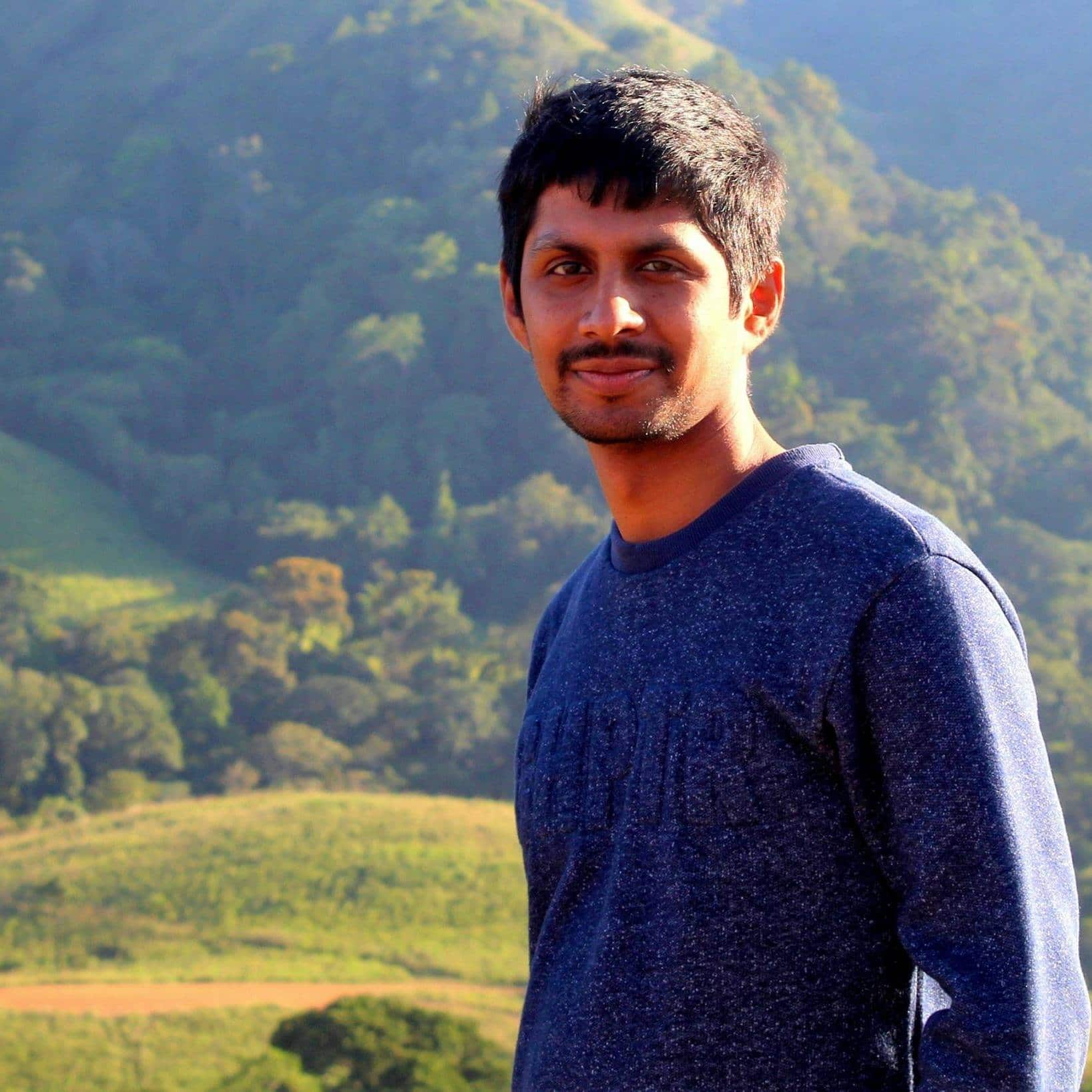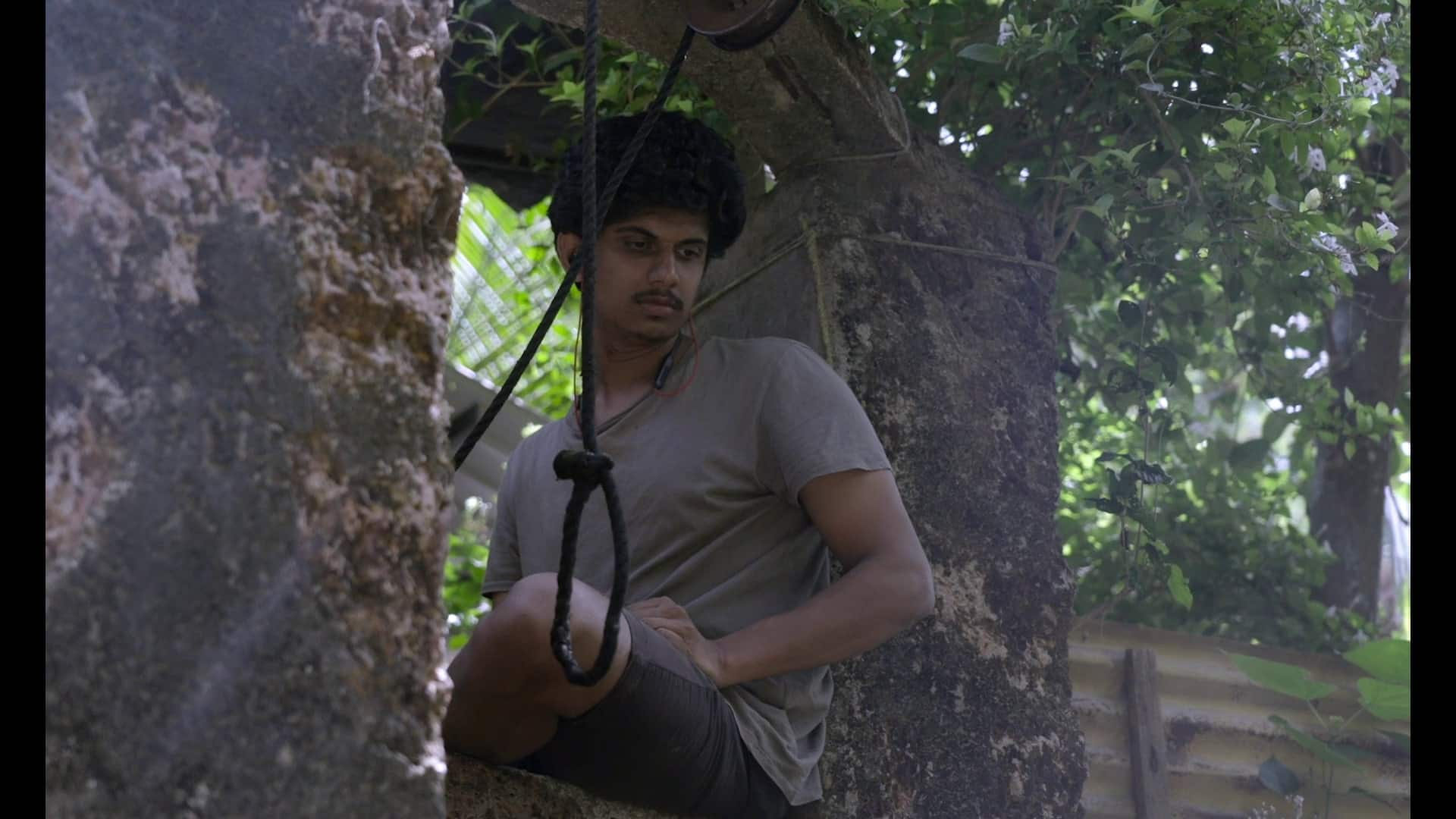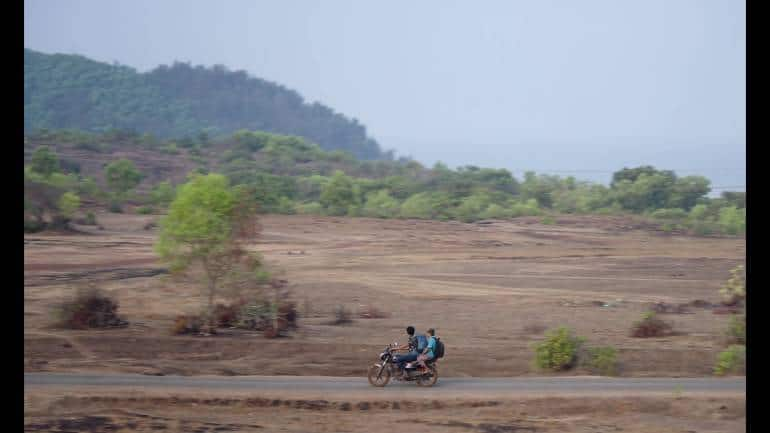



Kannada writer-director Nareshkumar Hegde Dodmari’s debut feature film Tingl Belku (The Light for the Rest of the Walk) was one of the six films to be part of the inaugural CinévSpotlight segment at the 2nd Cinévesture International Film Festival, Chandigarh, March 20-23. The section highlighted a selection of long-format content of 71 minutes and more. The other films in this segment were Swaha (In the Name of Fire) by Abhilash Sharma, Khidki Gaav (If on a Winter’s Night) by Sanju Surendran, Yeh Mera Ghar (My Home) by Prabodh Bhajni, Theatre — The Myth of Reality by Sajin Baabu and Umal by Siddharth Badi. Baabu’s film Biriyaani (2019) had marked the feature debut of Kani Kusruti.
 Filmmaker Nareshkumar Hegde Dodmari.
Filmmaker Nareshkumar Hegde Dodmari.
Dodmari, whose previous three short films screened at BISFF (Bengaluru International Short Film Festival), was among a handful of filmmakers, including Abhilash Shetty (Koli Taal; Naale Rajaa Koli Majaa), who were shown the door at this year’s BIFFes (Bengaluru International Film Festival). The selection jury, the filmmaker had told Newsminute, didn’t even see the full film on the Vimeo (video hosting/sharing platform) screener of Tingl Belku (The Light for the Rest of the Walk) that was sent to the festival. Around 9 minutes, 21 seconds of his 108-minute film was seen. The film has travelled to New Jersey Indian International Film Festival, Indian Independent Film Festival and won Dodmari the Best Debut Director For Regional Feature Film at the Rajasthan International Film Festival.
 A still from Tingl Belku.
A still from Tingl Belku.
Dodmari’s debut Kannada feature is a social realism film that also hopes to sensitise its audiences about teenage drug abuse and addiction told through the story of Sandeep (Sharath Raysad). The film gives us the following figures, very documentary like. According to the 2019 survey by the All-India Institute of Medical Sciences (AIIMS) and the National Drug Dependence Treatment Center (NDDTC), it is estimated that in India, around 7.21 crore people are affected by drugs. According to the Narcotics Control Bureau (NCB), drug-related cases increased to 12,818 in 2013 from 10,796 in 2012. The drug consumers in the country are estimated to be about 8,50,000 injectable drug users, with 18 lakh adults, and 4,60,000 children. As per a 2004 research report, 87.5 lakh used cannabis, 20 lakh used opiates and 6 lakh consumed sedatives or hypnotics.
 A still from Tingl Belku.
A still from Tingl Belku.
The characters have a realistic/documentary-like aspect about them, too. The film unfolds like a docu drama even though it is fiction. Sandeep, who studies in a Bangalore college and lives in a boarding there, has returned to his village home, where he finds his parents are rebuilding the house and preparing for his sister’s wedding to Harish (Naresh Bhat), a local lawyer — a wedding that his sister, who also lives away for work, as a teacher, is yet to give her consent to.
Sandeep, against his enfeebled parents’ hope, is of no help to them. He insists that he doesn’t want to be involved in the wedding matters and that he be left alone. Instead he wanders off to the nearby beach, roams around the village like a vagabond, idling away his time, something seems to bother him. When home, he just oversleeps. He is a dawdler but such behaviour, even if a bit much, isn’t alien to an angsty and wayward teenager, frustrated with everything around him. Sandeep is also an amateur poet, whose writings used to appear regularly in the local paper. It turns out that he was introduced to psychedelic substances when in college. That drugs aid poetic/creative pursuit is a trite idea. But with an impending narcotics police raid at his college, Sandeep has escaped to his village, delaying his return. He, after some coaxing, confides in his father Gopal (Venkatraman Gudaballi), though lies about trying to protect the identity of his nameless drug-addict friend. The matter seems to get out of hand when Gopal, in turn, approaches Harish, the lawyer and his potential son-in-law, for help.
 A still from Tingl Belku.
A still from Tingl Belku.
The most obvious issue with a film on drug abuse is that you don’t show the problem. It takes centrestage only when the lawyer gets a wind of it. The effects of drugs on Sandeep isn’t apparent, who seems like any other teenager at odds with his world, and would rather wander away from home or oversleep to avoid conversations with his family. The writing of those bits is sketchy. The character Harish’s acting has recall value. The others are decent but not impactful maybe because the writing is thin, the drug abuse/addiction plot needed more fleshing out, the audience need to feel for Sandeep, whose character arc needs an emotional/internal journey and growth through the course of the film. Artists need to surprise or shock us audience. Take us, along with his characters, on an emotional journey.
 A still from Tingl Belku.
A still from Tingl Belku.
However, it is a slice-of-life movie in the realm of realistic filmmaking, which brings to us stories of rural Karnataka, even as the subject is a universal one, training the lens on a pressing issue among the youth. While the idle, listless and directionless youth could have been explored more, Tingl Belku is also a story of fathers and sons, and hints at it very subtly on how children can go astray in spite of a benign parent caring to lend an ear. Almost like the popular series Adolescence. But Dodmari does not let his slowburn Tingl Belku go to those ends of interiority and emotional realisations and breakdown. It doesn’t build a crescendo but a sense of melancholia and of a helpless situation most families, without power, find themselves in.
 A still from Tingl Belku.
A still from Tingl Belku.
Where the film shines are in the subplots where the focus is on the family drama. That’s where the narrative starts to pick up. The social comments through his family situations, his absent sister Sandhya’s arc, whom we see in one scene speaks of the woman’s role in a patriarchal setup. While the father figure Gopal is a diminutive, benign presence, the mother is seen in matters of feeding and caregiving, Sandhya’s own family (the father, Gopal) and her could-be family (potential husband, Harish) are deciding her future on her behalf, given her past when a groom had called off the wedding. The woman’s choice is taken by the men. This is something Sandeep rebels against and tells a friend and his sister that whom she marries has to be her choice at the end. Harish, the lawyer, comes across as bossy figure, poking his nose in the family matters of Sandeep, much to his chagrin. Harish also buys farmlands of others and tells others to sell their uncontrollable bulls. It would have been interesting to see the cunning in him beneath a veneer of a benevolent, concerned village-folk get full fruition. But Dodmari, perhaps, didn't want to paint white and black and, thus, leaves his film open-ended — a good decision. It won’t tell us whether the mess will get messier and Sandeep will land up in jail or whether his to-be brother-in-law will be a saviour for him, for selfish reasons, of course.
 A still from Tingl Belku.
A still from Tingl Belku.
The dialogues, at times, tend to get verbose and predictable. Sanjay Channappa’s cinematography is of note. The village setting is realistic and the beach scenes are beautifully framed. Some of the wide-screen shots of the expanse are striking, especially the moving bike scene with the trees and hills in the background reminded me of PS Vinothraj’s Koozhangal (Pebbles) and Vipin Radhakrishnan’s Angammal. Aravind Srinivasan’s editing is seamless but could have been a bit tighter in places. Sound definitely requires work. However, director Dodmari shows good potential and Tingl Belku is a film that has its heart in the right place. Let’s see what rural Karnataka story he dishes out next.
Discover the latest Business News, Sensex, and Nifty updates. Obtain Personal Finance insights, tax queries, and expert opinions on Moneycontrol or download the Moneycontrol App to stay updated!
Find the best of Al News in one place, specially curated for you every weekend.
Stay on top of the latest tech trends and biggest startup news.